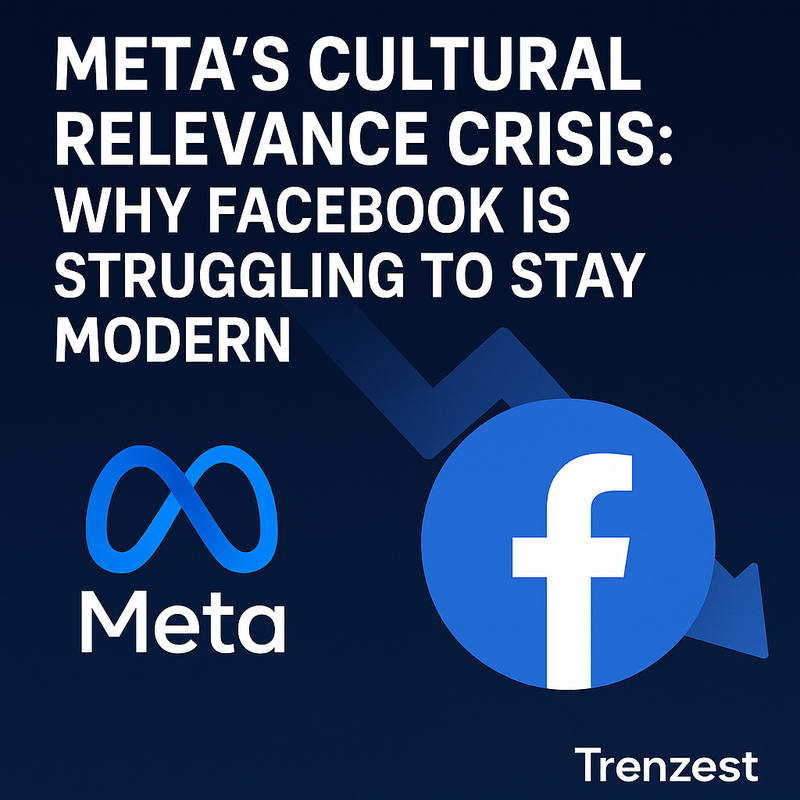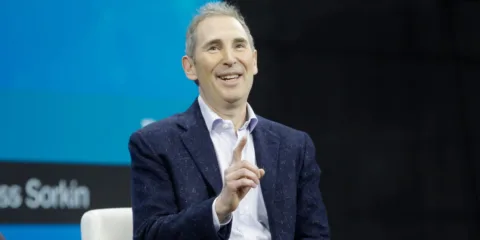Introduction: Meta’s Battle for Relevance
In the fast-paced world of social media, platforms must constantly adapt to cultural shifts and user expectations. Meta—formerly Facebook Inc.—finds itself at a crossroads in 2025, striving to make Facebook culturally relevant once again. As part of an ongoing antitrust trial brought forth by the U.S. Federal Trade Commission (FTC), internal communications from Meta have shed light on the company’s internal struggles and strategy debates surrounding Facebook’s future.

The Origins of the Problem: Insights from the Antitrust Trial
The trial, aimed at probing Meta’s competitive practices, unintentionally gave the world a rare look into the company’s internal operations. Among the documents released were emails from Mark Zuckerberg and other top executives, dated April 2022. These messages revealed deep concerns about Facebook’s declining cultural status, a problem that had been brewing for years.
Despite stable engagement numbers, executives were alarmed by the platform’s waning relevance, especially among younger audiences—who now favor platforms like TikTok, Instagram, and Snapchat.
Zuckerberg’s Concerns: Facebook’s Cultural Decline
Internal Warnings from 2022
In a 2022 email thread, Mark Zuckerberg expressed fears that Facebook’s identity was outdated and increasingly disconnected from user behavior.
“Even though the FB app’s engagement is steady in many places, it feels like its cultural relevance is decreasing quickly,” he wrote. “I worry this may be a leading indicator of future health issues.”
Zuckerberg emphasized that even if platforms like Instagram and WhatsApp thrived, Facebook’s faltering would be a critical blow to Meta’s long-term vision.
Is Facebook’s Friend Graph Obsolete?
One of the most eye-opening concerns was Facebook’s foundational structure—its reliance on the “friend” graph. Unlike Instagram’s follow-based structure or TikTok’s algorithm-driven content discovery, Facebook’s core experience still hinges on mutual friending. This, according to Meta leadership, feels antiquated in today’s digital landscape.
Zuckerberg noted that the act of “friending” felt outdated, heavy-handed, and out of sync with modern digital interactions. Users often prefer passive connection methods like “following,” which require no mutual agreement.
“Most of the time when I meet someone or become interested in someone, I just want to follow them,” he admitted.
2025: The Return of “OG Facebook”
To address these issues, Meta announced plans in early 2025 to return to what Zuckerberg called “OG Facebook”—an effort to reignite the platform’s core value proposition while modernizing its structure.
The Revamped Friends Tab
Central to this strategy is the reintroduction of a revamped Friends tab, designed to improve the way users interact with their network. The goal? Reinforce authentic social connections while gradually introducing more intuitive features that align with current user behaviors.
Although still early in execution, Meta hopes this change will lay the groundwork for a more adaptive and responsive Facebook in the years to come.
Proposed Fixes: From Following to Fresh Starts
Among the boldest ideas discussed internally was the complete abandonment of the friending system in favor of a full-scale following model—even for private accounts.
Another radical proposal: wipe users’ friend graphs clean and have them start fresh. While risky, the idea reflects Meta’s growing urgency to modernize the platform.
“We’d have to build out an experiment and test it in a smaller country,” Zuckerberg wrote, “but I think we’d need to do something relatively extreme like this to move the needle.”
Such ideas underscore how high the stakes are for Facebook in 2025.
What This Means for Social Media Marketers and Entrepreneurs
Facebook’s transformation is more than just a product update—it’s a signal to marketers, entrepreneurs, and brand strategists. As user behaviors shift, so must marketing strategies. Organic reach, engagement models, and user acquisition tactics will all need to be reevaluated based on how Facebook evolves its user graph and content distribution logic.
If you’re a business owner or marketer, now’s the time to reexamine your Facebook strategy and stay ahead of the curve. Tools like Trenzest help you monitor digital trends, test new strategies, and optimize your presence across emerging channels.
Conclusion: The Future of Facebook and Cultural Relevance
Meta’s journey to restore Facebook’s cultural relevance is a revealing case study in how even tech giants must evolve—or risk becoming obsolete. From rethinking its friending system to exploring radical changes like wiping user networks clean, Facebook is undergoing one of its most transformative moments since its inception.
For marketers and entrepreneurs, the message is clear: don’t wait for the shift—anticipate it. And with platforms like Trenzest in your toolkit, staying ahead has never been easier.




